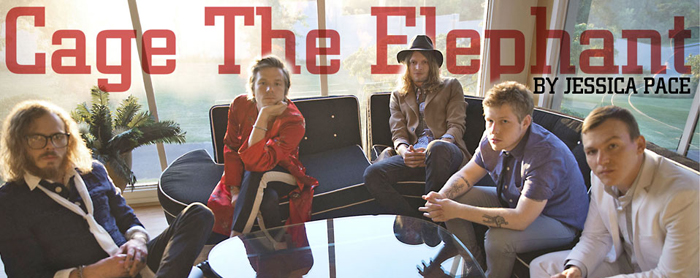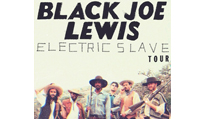Ever since they made––and left behind—a blockbuster of a debut, Cage the Elephant have been moving rapidly toward a sense of identity much different from what the band established with their first record. In 2008, the Bowling Green, KY group released an eponymous, blues-and-funk-and-classic rock-hybrid album, whose breakthrough single “Ain’t No Rest For the Wicked” was played and replayed on the radio, ad nauseum. The band came back in 2011 with Thank You, Happy Birthday, a record that avoided a sophomore slump but also forewent further funk-infused hits for a deeper, introspective brand of songwriting. Lead singer and lyricist Matt Shultz says he’s been moving away from “fear-based” songwriting—hence the title of album number three, Melophobia—and placing less emphasis on emulation and more on communication through songwriting.
Music Connection: How has your song-writing process evolved from album to album?
Matt Shultz: On the first record, we just wanted to get out of town and be in a rock band, and so we really looked up to people who we could hear on the radio in our hometown, people who seemed to be making music from a genuine place, because there were only two stations in Bowling Green to listen to. We would listen to classic rock and were really inspired by Jimi Hendrix and Dylan and all that stuff. We wrote and recorded that record in, I think, 10 days.
MC: Can you explain why you guys so drastically changed things up on the second record, after you’d moved to London?
Shultz: We wanted to be free from image and really started kind of combating fear-based writing and premeditated images of self, but at that point we hadn’t figured out what we were doing, but we were doing it. On our second record, we’d gotten to a place where we’d spent two years in London and were exposed to, obviously a lot more than we had in Kentucky, and we didn’t want to be so tethered to our former selves. At least I didn’t, where our music kind of projected our former selves.
MC:When writing songs, how much thought do you put into your creative process?
Shultz: On our latest record, it was an outright attempt to break away from any calculated strategic mindset when we were writing. We just didn’t want to write to be perceived as artistic or poetic or commercial or anything, probably even more so trying to fight against elitist titles, which kills the creativity process. Music is a means of communication; it’s a communal thing where you bring people together and hopefully communicate thoughts and feelings and stories that are hard to verbalize in everyday conversation. So for this record, we did a lot of experimenting with the creative process.
MC: Do you ever listen to other artists’ music when you’re writing and recording your own?
Shultz: I actually almost stopped listening to audio recordings the entire time we were writing and recording this record. I just didn’t want to be so directly, externally influenced and cross-referencing to things we liked. The whole band is involved with writing, but when it came to the lyrics, the thing that resonated with me was something a friend of mind had told me; he said one of his mentors, Isaac Brock from Modest Mouse, had said “If you’re not slightly embarrassed, or if you don’t feel vulnerable about the lyrics you’re singing, you’re probably not writing good lyrics.”
MC: It sounds like you decided to become a better, more sensitive listener, more aware of people, places and things around you?
Shultz: I started having my friends come over, and I was really into hot sake that winter, and we’d crack open some hot sake, and they’d just sit on my couch and start talking to me. It was weird, because anytime you let someone just start talking to you about their life like that, at least in my experience, you immediately become a psychiatrist, people weeping on your couch [laughs]. But it was amazing; the things they were saying were incredible. I was taking what they were saying, and creating lines. It was a really cool experiment that led to a whole new approach of creating lyrics.
MC: Do you feel like you’ve finally hit your creative stride with Melophobia and “Come A Little Closer,” the album’s single?
Shultz: I think we’ve written this record not to cater to cool, just to communicate a lot. It wasn’t about creating a sound that was necessarily a nod to your predecessors or ripping them off. It was about sitting down and drawing something and continuing to draw this image to provoke a feeling. Do I want this character to make me panic whenever I see it? Just making sure that everything I put into it makes you uncomfortable.
Whatever I was trying to communicate, we would work on it until it did that for us. It was probably the hardest record we ever made, because it was like the pains of childbirth, but to a certain extent, it felt like the first record we ever made. It felt like freedom. People in interviews have said it’s so crazy and that there’s all this change between records, but I think there was just so much fear, and it binds people.













